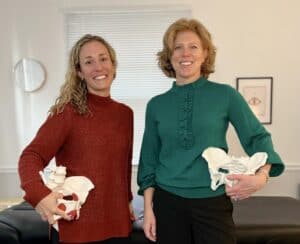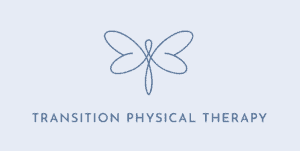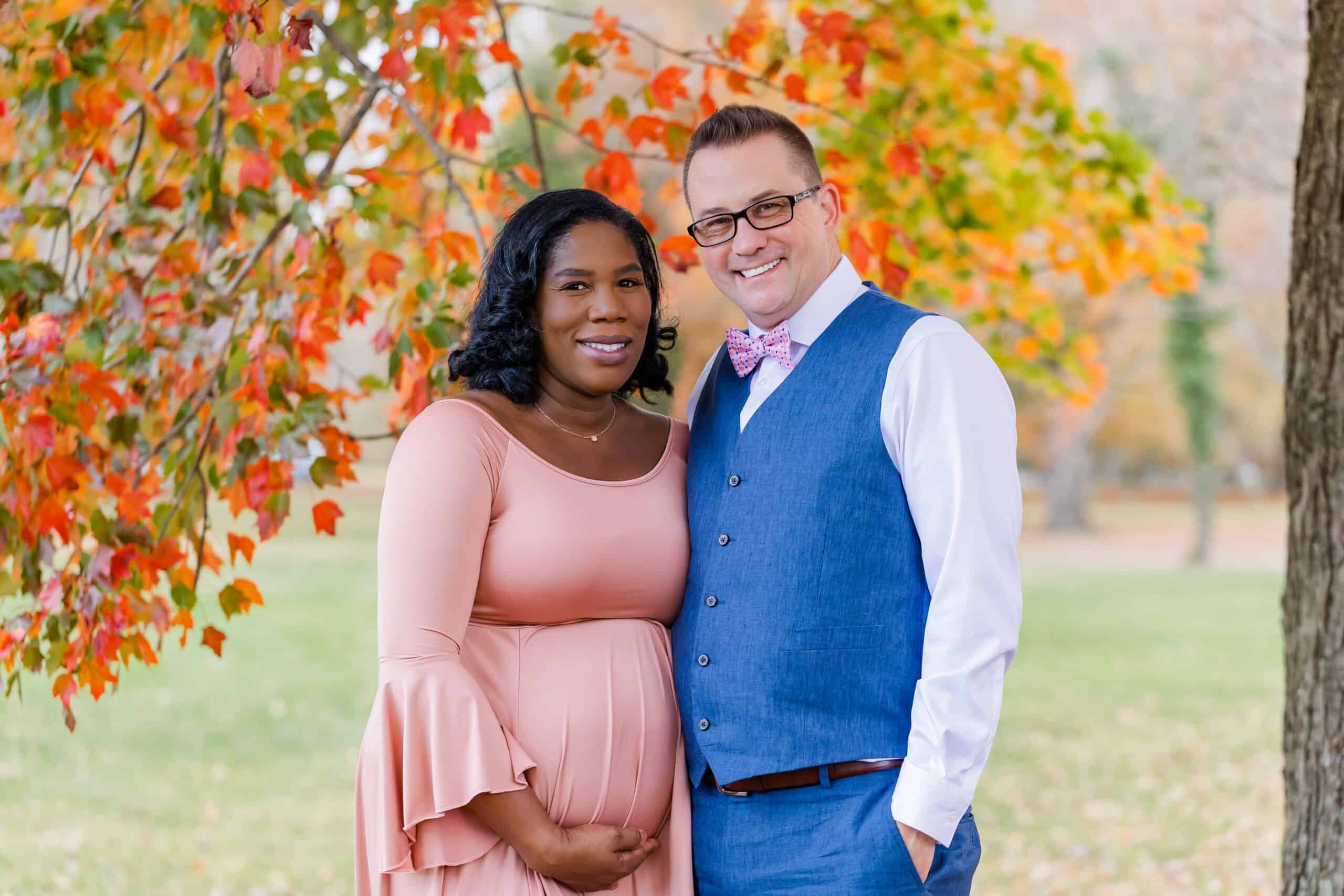When the aches, pains, and changes of pregnancy have got you down, consider Transition Physical Therapy for some help. With daily changes happening throughout your entire body, it’s important to learn about the resources available to you, and therapists Katie Bayer and Christine Chappell are passionate about what they do. Check out this interview about what Transition Physical Therapy can do for you!
Transition Physical Therapy
What inspired you to start Transition Physical Therapy?
I love the work I do, but always felt limited by the constraints of working for someone else. Maybe it’s because of my Type A personality, but I wanted full control for not only how I treated patients, but in their entire experience. I envisioned a calm and healing space, which I was able to create with Transition!
What prenatal services do you offer?
We work with a lot of pregnant people who have pain, or other issues like incontinence or prolapse. There is a lot we can work on to make people comfortable while their bodies are growing and changing. We also help with birth preparation- helping people learn how to breathe, push, and teaching position options for labor and delivery.

What other services do you provide to your clients at Transition Physical Therapy?
We treat all things pelvis, spine, hips etc! Most people come in for a postpartum or pelvic floor issue, but we end up treating the entire body. And surprisingly we can also help with gastrointestinal issues, and other abdominal and pelvic organ issues, including endometriosis. The body works as a whole, and we can’t get a person better by just treating the one area that brought them in.
So what exactly is pelvic floor therapy and how does it benefit women, expecting and postpartum?
Pelvic floor therapy is whole-body therapy that includes treatment of the pelvic floor. The big part that separates a pelvic floor therapist from a traditional PT is that we treat internally (vaginally and/or rectally). I believe that our superpower is being able to teach a person about their pelvic floor and how it interacts with the rest of the body. This knowledge can help prevent injury now, and far into the future. But, we don’t JUST treat the pelvic floor directly. We do a lot with breathing, the diaphragm, spine, hips, and even the feet and TMJ!
When someone is pregnant, their body is changing literally everyday. This can lead to pain, discomfort, or weaknesses that we can address in PT. Also, learning how to labor and deliver with less stress to the pelvic floor and body as a whole is extremely important.
In postpartum, we focus on reconnecting to their body and relearning how to activate their core, to breathe properly, ergonomics for motherhood and helping them prepare for whatever activities they want to return to (exercise, sex, work etc).
What can someone expect when they come in for their first visit with Transition Physical Therapy?
There will be a lot of talking- getting your full history is incredibly important to be able to get to the root of your issues. Then a full body assessment is performed, including posture, breathing mechanics, range of motion and assessing your soft tissues or other areas where you may be holding tension.
Sometimes we do internal work on the first session, but sometimes we wait because of time constraints, or because the patient wants to. The patient always has control and gives consent before and during any internal work. That’s incredibly important.
How do you educate and empower patients to take an active role in their recovery?
I believe that education about your own anatomy is incredibly important and empowering. How can we expect people to take care of their bodies when they know nothing about the bodies? I love showing people the pelvic floor model and explaining how everything else in the body connects to it. I encourage people to ask questions and maintain a “nothing is TMI” policy at all times. The less embarrassed we are about our bodies (even pee, poop and sex!) the more people will seek help for these issues.
Do you work with other healthcare providers, such as obstetricians and gynecologists, to provide comprehensive care for patients?
Yes! I love collaboration with ALL like-minded healthcare providers. I believe in a holistic, mind-body approach, and love connecting with individuals who treat in a similar way. One person I have really connected with is Megan MacCutcheon, who is a perinatal mental health therapist. We realized we have the same dream of creating a place focused on holistic wellness, and are at the start of creating that now. We have already started an online business, called Perinatal Place (www.perinatalplace.com), and we hope to transition that type of model to a physical space in the upcoming year.
Thank you so much to Katie for such an informative interview. For more information about Transition Physical Therapy’s services, head on over to their website.

Transition Physical Therapy
If you’re here reading about Transition Physical Therapy and how they can help you during your prenatal or postpartum journey, I’d love to talk to you about your maternity and newborn photography needs! Check out my website for all the info at the links at the top of the page!
Want more amazing motherhood blog content? Check out these posts:
- Mamistad | Creating Meaningful Connections Between Moms
- Innate Beginnings | An Informative Interview About Your Prenatal Chiropractic Care
- An FAQ Interview with Thrive Breastfeeding for Moms-to-Be
As a Northern Virginia photographer and fellow mom, I felt there was a need for a safe, supportive, and drama free space for moms and moms-to-be to come together and support one another through the crazy lives we live as moms. Come join us and chat all things motherhood, pregnancy, and more!
